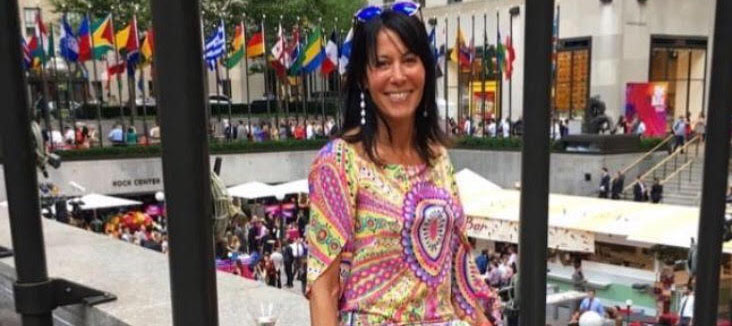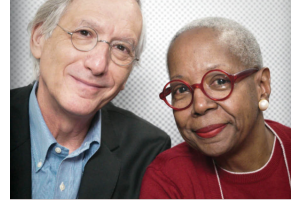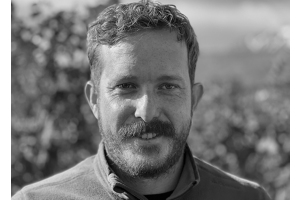Weed & Wine is a documentary that explores universal themes of family, legacy, and sustainability. Emmy-nominated filmmaker Rebecca Richman Cohen invites viewers into the lives of two families: the Jodreys in Humboldt, California, and the Thibons in Rhône Valley, France.
As the Jodreys transition from black market to legal cannabis cultivation, the Thibons continue to care for their biodynamic vineyard, a tradition that has been passed down through generations. Both families face unique challenges, but what binds them is their passion for their craft and their struggle to protect what they’ve built for future generations.
Grape Collective spoke with Cohen to learn more about the making of Weed & Wine and the stories that shaped it.
Lisa Denning: What inspired you to make a documentary that explores parallels between the cannabis and wine industries?
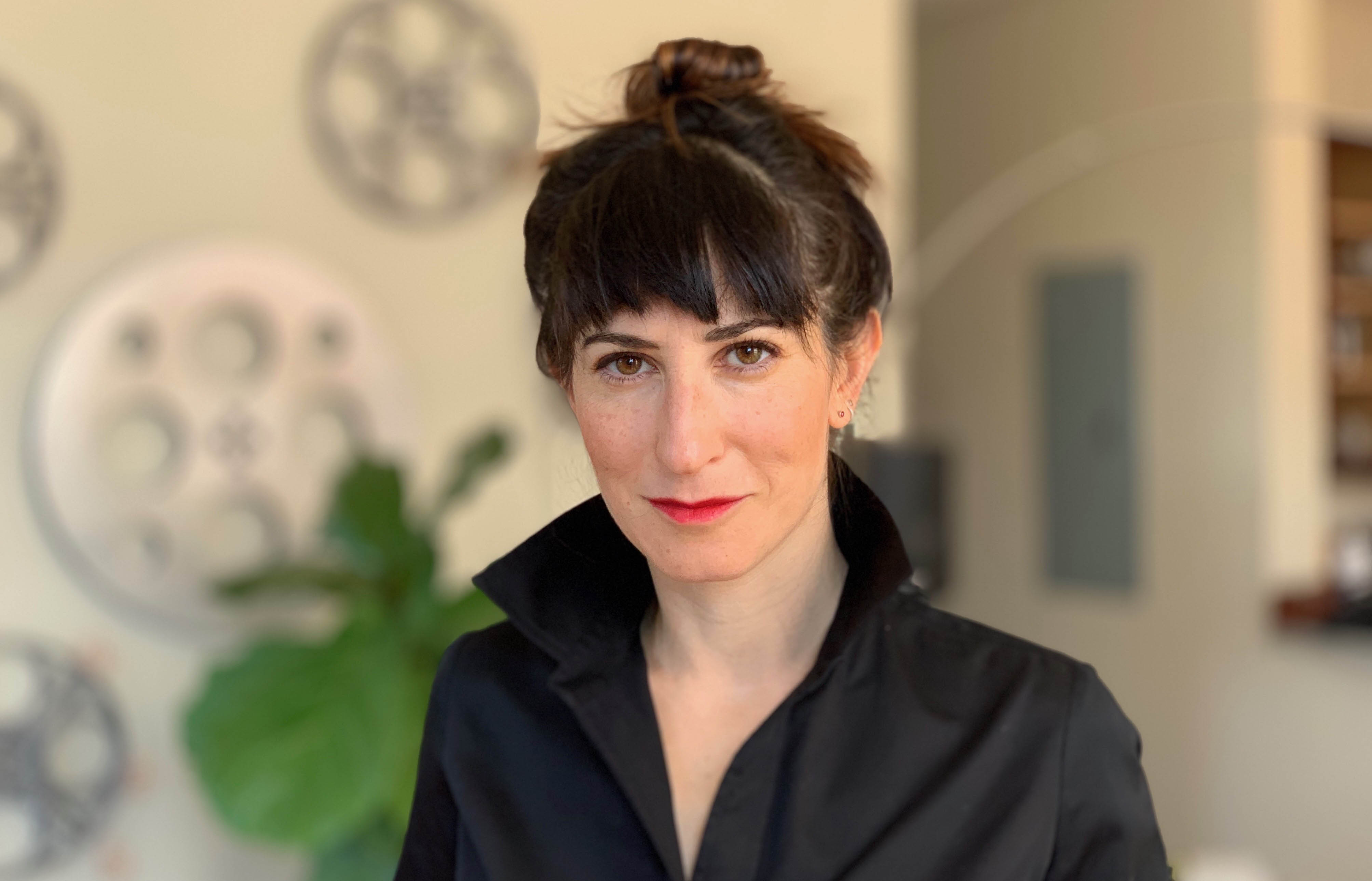 Rebecca Richman Cohen: I knew a lot more about the cannabis world than the wine world. I have a close friend who's a wine connoisseur, and we were out one night and she explained to me the idea of terroir, a word I wasn't familiar with at all. And I said, "That's incredible. Does cannabis have terroir?" And she said, "We should go find out."
Rebecca Richman Cohen: I knew a lot more about the cannabis world than the wine world. I have a close friend who's a wine connoisseur, and we were out one night and she explained to me the idea of terroir, a word I wasn't familiar with at all. And I said, "That's incredible. Does cannabis have terroir?" And she said, "We should go find out."
So, the idea was a project we could explore together. Originally, we were thinking about comparing these two industries, these two plants, and then we started the research for the film, and I met the Jodreys in California and the Thibons in France. And much more interesting to me than the industries were the family dynamics of what it meant to grow craft cannabis or biodynamic wine. And so after we started the research, we sort of pivoted, and I think we knew fairly early on that it was going to be the family themes that were the most salient things in the story.
When I started watching the film, I wasn't expecting that focus. I thought it would be more industry-focused and how weed is taking some of the market share from wine, but the film is just this appealing story about families. How did you find the two families featured in the film?
I found Kev Jodrey pretty quickly. I knew I wanted to go to Humboldt because I knew it was almost like a mythical region in my mind, where cannabis came from. I met with a lot of farmers there, but everyone said, "You have to talk to Kev, you have to talk to Kev, you have to talk to Kev." You get a sense of how incredibly dynamic he is just from seeing the film.
And so I met with Kev, I think it was the summer of 2016, and then we went back, it was probably September 2016, to film a little bit and see how he'd be on screen. And it was our second trip where I met Cona, and that's when I was like, "Oh, this is interesting." I'm sure it's my own prejudice, but I just didn't imagine Kev to be this incredible, warm father. And to see how loving and connected his relationship was with his family. That's when I knew we had to make the film.
And then, in France, the research was harder. Many winemakers we reached out to, and just many folks generally when we were researching the film, were like, "Wine and weed have nothing to do with one another." The film makes some parallels, we also show lots of differences between the two farms and the two families, but many French people didn't want to be a part of that.
And we said, "Okay, thank you very much. You're clearly not a good fit for this project." And then, as soon as we met Hélène, she understood immediately. She was like, "Yes, we're growing two different plants, but we're both farmers." She just approached the project with such openness and curiosity. And without that sort of knee-jerk judgment that we found with lots of other folks. As soon as I met Hélène, I knew how incredible she was. But Aurélien wasn't there. He was still in New Zealand when we were first researching the film. So it was kind of a leap of faith. We spoke to him on the phone, and he was open about the project. But it was hard to move forward without meeting him. We met him in the first weeks and months when he returned to work at Mas de Libian, and so it was a time of incredible change and transition that they welcomed us into. So we felt really lucky about that.
What challenges did you face filming in two distinct locations, California and France?
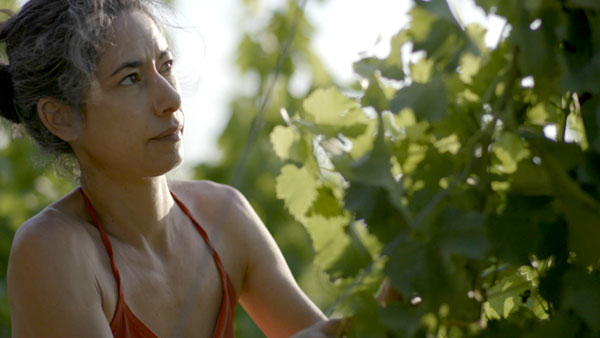 There were lots of challenges. The biggest one, I think, was jet lag. There were times when we flew from California to France. And Hélène and her crew start work at 5 AM in the summer, so we had to wake up at 4 A.M. to start filming them. Fatigue was definitely one challenge.
There were lots of challenges. The biggest one, I think, was jet lag. There were times when we flew from California to France. And Hélène and her crew start work at 5 AM in the summer, so we had to wake up at 4 A.M. to start filming them. Fatigue was definitely one challenge.
I think it was also a steep learning curve for me. I love wine, and I love cannabis, but when I started making this film, I was by no means an expert in either. I had more of a background in things related to drug policy, and I made two other films that had to do with cannabis, Code of the West and a short film called Mrs. Saltzman Goes to Jail about an 80-year-old great-grandmother who was arrested because her medical marijuana card had expired.
But it was a steep learning curve for both. And with France, the cross-cultural questions. I think it was just so interesting to see how each family responded. And sometimes, in France, the filming was just so grueling. It was incredibly hot. And I don't know if you're familiar with Mas de Libian and their wines, but it's very rocky, and we were carrying mounds of equipment trying to keep up with them moving unbelievably fast. And they're not going to stop for us. They're just doing their thing. We keep up, or we don't.
But of all the films I've made, I think this was the most loving. There was a lot of excitement and enthusiasm and openness and trust with both families. Kev even had a near-death experience. Both families struggled with some real hardships that they trusted us enough to be honest. It was relationships that were built over time, but I think were really worth it.
The film explores generational transitions as each family prepares to pass on their farms to the next generation. Were there any surprising similarities or differences between a French winemaking family, steeped in generations of tradition, and a California family, whose business was created just a few decades ago as an illegal operation?
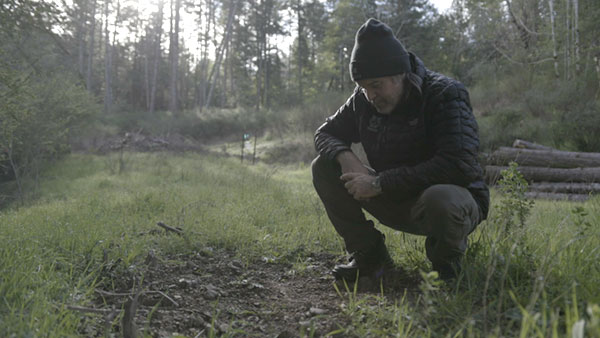 I think we were pretty open-minded. We knew there were real differences in culture. You know, Kev calls himself an outlaw and a pirate. But the more surprising thing was that Hélène frames herself very similarly as someone who finds freedom at the margins—someone who paved her own path, whose entire family paved their own path making biodynamic wines. They're not part of an AOC because they make outlier decisions. They harvest early. They don't make wines for typicity. They make wines that really express, I think, the uniqueness of their terroir and their approach to winemaking. And so I think in that way, Hélène's a pirate too. And I think that did feel sort of surprising.
I think we were pretty open-minded. We knew there were real differences in culture. You know, Kev calls himself an outlaw and a pirate. But the more surprising thing was that Hélène frames herself very similarly as someone who finds freedom at the margins—someone who paved her own path, whose entire family paved their own path making biodynamic wines. They're not part of an AOC because they make outlier decisions. They harvest early. They don't make wines for typicity. They make wines that really express, I think, the uniqueness of their terroir and their approach to winemaking. And so I think in that way, Hélène's a pirate too. And I think that did feel sort of surprising.
I just think the cultures of both families are so pronounced. And in France, wine is an agricultural product that is supported, that is revered, that is very much part of their national identity. And in Humboldt, it's very much part of local culture. But Americans are still steeped in our puritanical approach to regulation. And it has been hard. Humboldt has been decimated. I think Kev says there were close to 30,000 cannabis farms operating when we started filming in 2016, when California legalized recreational cannabis. And now there are, I think, fewer than 300. So it has been radical in Humboldt, radical and very hard. And after we stopped filming, there were many years that Kev stopped planting because he was operating at a loss. He teaches and consults, and does many other things, but small-scale farming in cannabis is just not lucrative. There's not the kind of consumer base that wine has of folks who are willing to pay more for sun-grown craft cannabis.
A big part of the film concerns sustainable agriculture. What do you hope viewers take away regarding the future of farming?
In the early days, when we talked about what the film could be, we sort of imagined it. There have been so many wonderful films, Fast Food Nation, films that help Americans understand where our food comes from, and that's critically important. And I think the wine industry has done an incredible job of storytelling, of building a consumer base who really care about where their wine comes from, and wants some human connection to it. And so we hope the film can do for cannabis what I think the wine industry has done over the course of many, many, many, many years. To build that curiosity and those relationships, about where our agricultural products come from.
One of Kev’s stories concerns the family’s dog being euthanized. Did you debate whether you were going to include that part? It's so heartbreaking for animal lovers.
We didn't debate including it because it felt so important to their lives. It was this incredibly hard moment for them when their business was falling apart, and they wound up shutting down the nursery. And Kev had gotten sick. And it was a dog that was causing harm, who bit his daughter Emma when she was quite young, four or five.
And so, as a documentary filmmaker, you don't get to decide what happens. It's the world unfolding in front of you. And it was incredibly hurtful to Kev’s son, Cona, both that it happened and that he wasn't involved. And I think it’s still quite anguishing for Kona to revisit that part of the story. But it also felt very true to who they were and to what was happening. And so it felt critical to include it in the film.
What do you hope is the main takeaway for viewers of the film?
I think we purposely left the film very open-ended. And we hope that there are lots of different takes. But I hope that people are left with a question of what happens next. Because I was left with that question. And because I have come to love both of these families so much, and I want to continue filming them. So right now, we're in development on a sequel and hopefully a film after that and after that. Our team has been inspired. I don't know if you're familiar with Michael Apted's series, Seven Up, that filmed English school children starting in the sixties. They filmed them when they were seven, then when they were 14, 21, 28. And you see this dynamic change over time. And so that's what we want to do with these two families. We want to continue filming them every seven or eight years to see what's going on in their lives with climate change and regulatory change. All these questions, but mostly driven, I think, by the family narrative.
And so on September 24th when we release the film, we're also launching a Kickstarter campaign to try and raise funds for the sequel because we hope people become invested in these two families in the same way our filmmaking team is invested, and that they come along with us for the journey, following both of them over time. And our Kickstarter also offers a bunch of additional perks. We have the first time the Thibons met the Jodreys on Zoom, so that'll be one of the bonus rewards for Kickstarters.
How can people find the film?
It will be released on Apple, Amazon, and Vimeo on September 24th.
Great. Is there anything we didn't cover that you'd like to add?
I think the Kickstarter campaign, the sequel, is a great note to end on.
